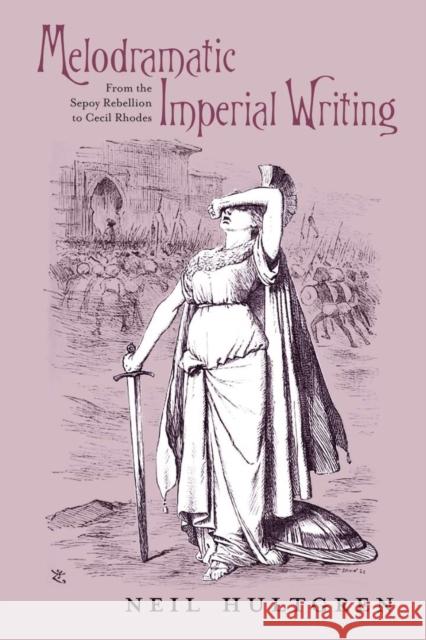Melodramatic Imperial Writing: From the Sepoy Rebellion to Cecil Rhodes » książka
Melodramatic Imperial Writing: From the Sepoy Rebellion to Cecil Rhodes
ISBN-13: 9780821420850 / Angielski / Twarda / 2014 / 256 str.
Neil Hultgren has produced a persuasive and accessible text focusing on two significant leitmotifs. First, he widens our understanding of the range of melodramatic writing, both temporally and spatially, by arguing for its broader literary and historical significance. Second, he focuses on melodrama s relationship with British imperial writing of the late nineteenth century in a bid to resurrect it from its reputation as merely a conveyor of violent and jingoistic propaganda. Emphasizing three common themes in the melodramatic mode and by moving beyond the early stage to include novels, short stories, and poems, he makes a persuasive case for its diversity and significance. Modern Language ReviewMelodrama is often seen as a blunt aesthetic tool tainted by its reliance on improbable situations, moral binaries, and overwhelming emotion, features that made it a likely ingredient of British imperial propaganda during the late nineteenth century. Yet, through its impact on many late-Victorian genres outside of the theater, melodrama developed a complicated relationship with British imperial discourse.
Melodramatic Imperial Writing positions melodrama as a vital aspect of works that underscored the contradictions and injustices of British imperialism. Beyond proving useful for authors constructing imperialist fantasies or supporting unjust policies, the melodramatic mode enabled writers to upset narratives of British imperial destiny and racial superiority.
Neil Hultgren explores a range of texts, from Dickens s writing about the 1857 Sepoy Rebellion to W. E. Henley s imperialist poetry and Olive Schreiner s experimental fiction, in order to trace a new and complex history of British imperialism and the melodramatic mode in late-Victorian writing."











